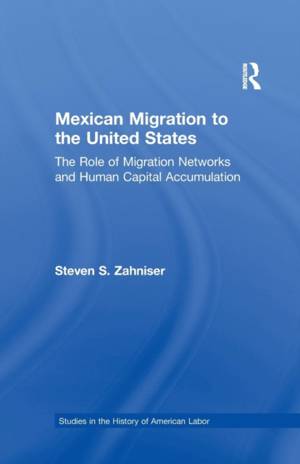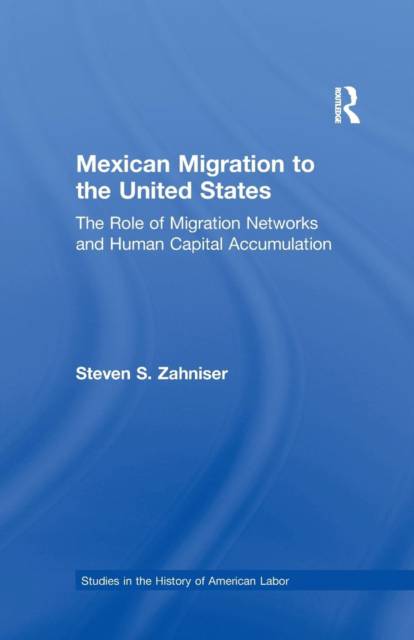
Je cadeautjes zeker op tijd in huis hebben voor de feestdagen? Kom langs in onze winkels en vind het perfecte geschenk!
- Afhalen na 1 uur in een winkel met voorraad
- Gratis thuislevering in België vanaf € 30
- Ruim aanbod met 7 miljoen producten
Je cadeautjes zeker op tijd in huis hebben voor de feestdagen? Kom langs in onze winkels en vind het perfecte geschenk!
- Afhalen na 1 uur in een winkel met voorraad
- Gratis thuislevering in België vanaf € 30
- Ruim aanbod met 7 miljoen producten
Zoeken
Mexican Migration to the United States
The Role of Migration Networks and Human Capital Accumulation
Steven S Zahniser
€ 71,95
+ 143 punten
Uitvoering
Omschrijving
Contrary to the thinking of some U.S. policymakers, changing macroeconomic conditions in the both the U.S. and Mexico have little effect on Mexican migration. This book evaluates the importance of family networks and human capital accumulation in the migration decisions of Mexican households. Family networks substantially increase the likelihood that a Mexican head of household participates in the migration to the United States. The prior migration experience of close relatives and the presence of family and friends in the United States reduce migration costs and provide vital information about the migration process. Moreover, a head of household with a family network tends to be more transitory, spending shorter periods of time on both sides of the border. While in the United States, Mexican migrants may develop new talents and acquire valuable work experience, enabling them to secure higher wages in the Mexican labor market. To examine this largely unexplored topic, the book compares the monthly earnings in Mexico of persons with and without migration experience. U.S. experience is shown to have a powerful impact, with the first year yielding a six-percent increase in earnings. This return far exceeds that which results from an additional year of education or an additional year of work experience in Mexico. Thus the acquisition of human capital may be a powerful motive behind Mexico-U.S. migration, especially for younger Mexicans just entering the labor force. (Ph.D. Dissertation, University of Colorado at Boulder, 1996; revised with new introduction and preface)
Specificaties
Betrokkenen
- Auteur(s):
- Uitgeverij:
Inhoud
- Aantal bladzijden:
- 282
- Taal:
- Engels
- Reeks:
Eigenschappen
- Productcode (EAN):
- 9781138981027
- Verschijningsdatum:
- 30/06/2016
- Uitvoering:
- Paperback
- Formaat:
- Trade paperback (VS)
- Afmetingen:
- 140 mm x 216 mm
- Gewicht:
- 326 g

Alleen bij Standaard Boekhandel
+ 143 punten op je klantenkaart van Standaard Boekhandel
Beoordelingen
We publiceren alleen reviews die voldoen aan de voorwaarden voor reviews. Bekijk onze voorwaarden voor reviews.









